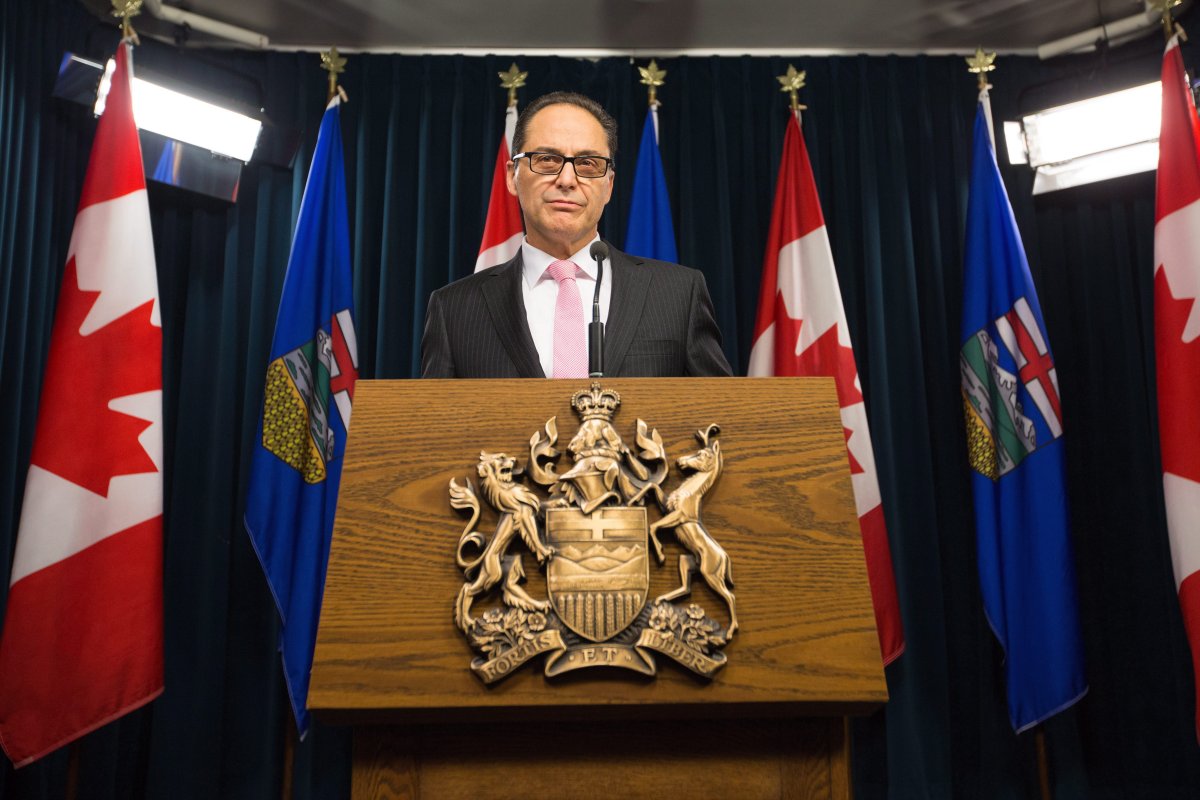FORT MCMURRAY, Alta. – Alberta Finance Minister Joe Ceci and Premier Rachel Notley say more restraint measures are coming in next month’s budget.

But they also reiterated Friday that the overall plan remains not to cut so deep as to make a bad situation worse.
Ceci and Notley made the comments at a town hall meeting in Fort McMurray, fielding questions on the upcoming 2016-17 spending plan.
Ceci has said with no end in sight to low oil prices, the expected deficit for 2016-17 could be double the original projection and end up over $10 billion.
He said the province is looking to save money where it can.
“We’re doing a number of other things that you’ll see rolled out in Budget 2016 that shows we’re additionally restraining the amount of money that goes into government services,” Ceci said.
Ceci declined to give more details on those measures.

Get weekly money news
READ MORE: Alberta on track for record deficit: Finance minister Ceci
The budget is to come out in early April, though Ceci has not announced a specific date.
Alberta’s economy is reeling from continuing low oil prices. Oil has gone from more than US$100 a barrel in 2014 to the mid-$30 range now.
READ MORE: Latest outlook for oil prices: Low, and staying there
There have been tens of thousands of job losses in the private sector as the provincial GDP continues to contract.
However, both Ceci and Notley reiterated the plan is to save where possible, but not worsen things with deep cuts to public services.
“We are not going to restore the price of oil by laying off teachers, by laying off nurses, by undercutting our health care (and) by undercutting our education (system),” said Notley.
The government plan introduced last year calls for a two per cent boost in overall spending in the 2016-17 budget, focusing the extra cash on core areas like health and education.
READ MORE: New taxes and benefits: Alberta budget 2015 highlights
The province will continue its plan to accelerate capital spending to get roads, schools and hospitals built to take advantage of low borrowing costs and a larger labour pool.
The province now has about $19 billion in debt and that figure is to grow to an estimated $48 billion by the end of the decade.
The government does not have a plan to pay it back, but can’t by law run up debt higher than 15 per cent of the GDP. The province is currently at just under six per cent.
“You need to borrow within what you can afford to do, and you need to have a plan to get rid of that deficit that is realistic and reasonable,” Notley said to those at the meeting.
Ceci admitted last week that with oil prices remaining low and the deficit ballooning to $10 billion, the original plan to balance the budget by 2020 is no longer attainable.
He hasn’t given a new target date.






Comments